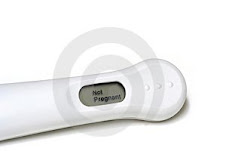But planning to adopt a child from another part of the globe has made me more aware of, well, another part of the globe. What happens in Ethiopia matters to me because my child lives there. His/her birth parents are trying to survive there.
I started buying Ethiopian coffee because it made me feel closer to my child. Goofy, I know, but I take what I can get in these early days of the process. While doing a little research, I learned how very important coffee is to the Ethiopian economy. Here are some stats from a great website called www.ethiopianrestaurant.com :
- Coffee Ethiopia's Number 1 Export
At present Japan stands second in purchasing Ethiopia's coffee after Germany.
Today, there are over 100 Ethiopian coffee exporters, compared to just 17 during the Derg. The largest is Nejat International PLC, with 11% of total exports, followed by government-owned Ethiopian Coffee Export Enterprise (8% of the total) and Moplace Trading Co. Ltd. (5%).
| Coffee Farms: | 331,130 peasant farms 19,000 state farm coffee areas |
| Coffee Workers: | about 12 million |
| Shade-Grown: | 55% light shade 33% medium 17% heavy |
| Major Coffee Growing Regions: | Harrar, Sidamo, Yirgacheffe (in Sidamo), Limmu, Djimmah, Lekempti, Bebeka |
| Botanical Cultivars: | Native arabica (arabica coffee is indigenous to Ethiopia) |
| Harvest Times: | Washed: August-December Dry: October to March Exports all year |
| Certified Organic: | None certified: all coffee grown organic by tradition |
| Rank in Production:: | 1st in Africa 7th in World |





Ivana, where do you find Ethiopian coffee? Where can you buy it?
ReplyDeleteI first noticed it at Trader Joe's. They also have it at Whole Foods. I'm not a Starbucks person, but they might have it there, too. I know Starbucks supports Fair Trade coffee.
ReplyDeleteWhat a neat way to feel connected to your new little one!! Thank you for sharing the importance of coffee exportation to Ethiopia. That is something I would never have thought of. It's fun to learn about other regions in the world, and I'd imagine knowing you're going to have such a wonderful and permanent connection to there makes it even more exciting!! :)
ReplyDelete